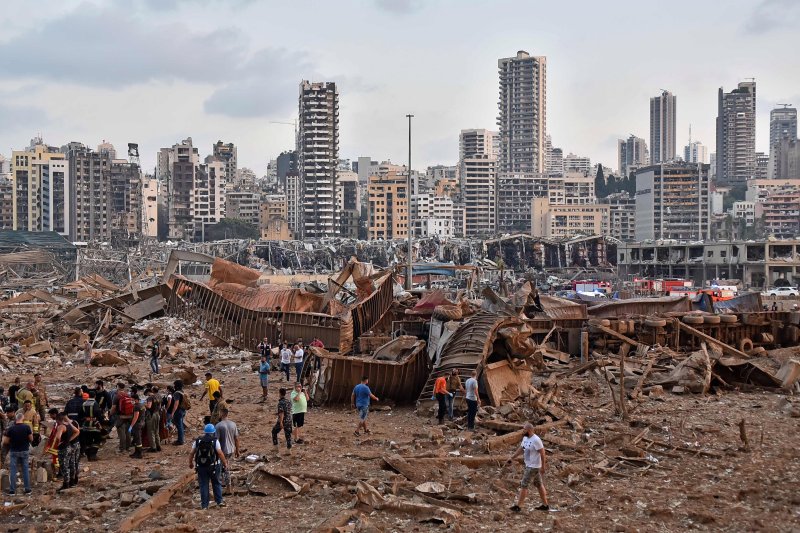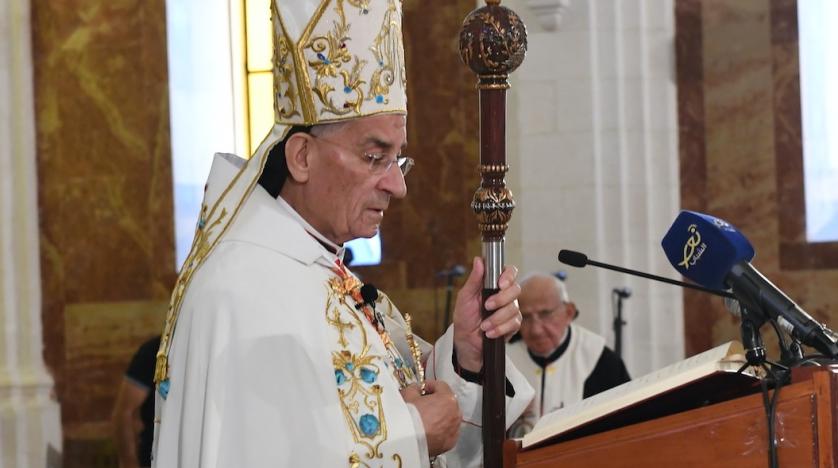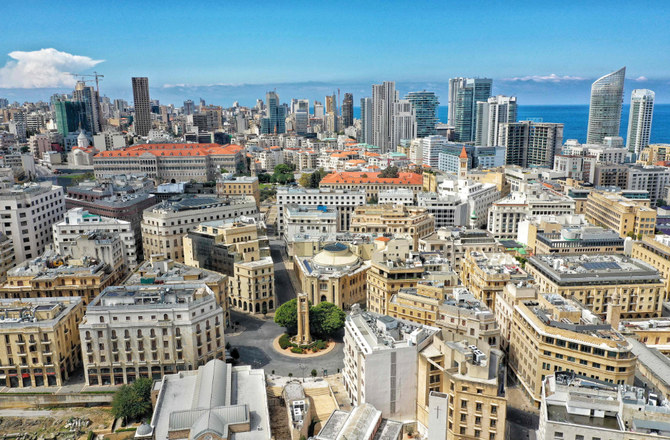by lb.usembassy.gov — A senior delegation from the U.S. Department of the Treasury concluded a three-day visit to Lebanon on March 2. …

by Michael Young -- thenationalnews.com -- There has been much speculation lately about whether Lebanon will go ahead with its parliamentary elections, scheduled for May. While most of the country’s major parties may have an interest in postponing the vote, the obstacles to this are very significant, suggesting that there is a better than even chance that elections will be held. Certainly, parties such as Hezbollah and its electoral allies, the Amal Movement of Parliament Speaker Nabih Berri and the Free Patriotic Movement of President Michel Aoun and his son in law Gebran Bassil, might favour a delay. Amal and especially the FPM are expected to lose some seats, and therefore prefer to retain their present share in Parliament. As for Hezbollah, it controls, with its various allies, a parliamentary majority, and has no enthusiasm to see this eroded. There are several problems with this, however. The first is that an election can only be postponed if Parliament extends its constitutional term, requiring a two-thirds majority vote. Mr Berri can probably find the numbers, but that’s unlikely to be enough, as he will also be seeking broad sectarian support as well, in order to lend national legitimacy to what is bound to be a controversial decision.
The big question mark is how the main Sunni bloc, controlled by former prime minister Saad Hariri, will vote. Mr Hariri withdrew from politics in January, in a decision widely believed in Lebanon to have been encouraged by Saudi Arabia. If he were to order his bloc to vote for extending Parliament’s term, this could be seen as a surreptitious way of trying to remain active politically, which he doubtless does not want to do. While most of the country’s major parties may have an interest in postponing the vote, the obstacles to this are very significant

By Catholic News Service -- ROME — Catholic leaders from Europe, the United States and Canada called on their governments to support Lebanese Cardinal Bechara Rai’s appeal for an international conference to protect Lebanon. In a joint statement issued March 1, the leaders said such a conference must find guarantees that uphold Lebanon’s “independence, sovereignty and neutrality”; safeguard Lebanese citizens’ right to free and fair elections; and help establish “good governance, honesty, transparency and accountability in the service of Lebanon’s people.” Rai, patriarch of the Maronite Catholic Church, repeatedly has called for an international conference to protect Lebanon, and for many Lebanese the past year has been “marked by pain, poverty and despair,” said the bishops. “
We have heard the warning of Pope Francis that ‘Lebanon is in great danger’ and his appeal for us to turn our minds to the ‘unprecedented crisis’ it faces. We support the Holy See’s continued efforts to seek peace in Lebanon,” the bishops said, adding that they prayed the recent visit of the Vatican foreign minister, Archbishop Paul Gallagher, and his calls for dialogue would bear fruit. “The global community must stand alongside all those working to keep alive the principles that shaped Lebanon’s constitution and helped to end conflict through achievements such as the 1989 Taif Agreement and 2008 Doha Agreement,” the bishops said. The Taif Agreement sought to end Lebanon’s civil war, and the Doha Agreement, signed by rival Lebanese factions in Qatar, marked the end of a year-and-a half political crisis.

by arabnews.com -- NAJIA HOUSSARI -- BEIRUT: A US Treasury delegation on Tuesday held talks with officials in Beirut on the Lebanese government’s cooperation in combating money laundering and corruption, as well as the crisis in the Lebanese banking sector. The delegation — headed by Paul Ahern, principal deputy assistant secretary at the US Treasury; his deputy Eric Meyer; and a group of experts in financial crime — was following up discussions the previous day on combating terror financing, and illicit drug and smuggling operations, President Michel Aoun told US officials that Lebanese laws “are applied firmly and accurately in this field, and international financial institutions testify to that.” Aoun said: “Lebanon actively participates in international efforts to combat money laundering, and plays its role in the Financial Action Group for this purpose in the Middle East region. It also established the National Coordination Committee for Combating the Financing of Terrorism and the National Anti-Corruption Commission.”
The Lebanese leader pledged that the fight against corruption “will continue unabated during the remainder of the presidential term,” and cited the forensic audit of the central bank’s accounts as “one of its most prominent manifestations.” Aoun said that the capital control bill targeting foreign transfers and cash withdrawals from banks in Lebanon is due to be approved by parliament before its mandate ends in May. He also thanked the US for its support for Lebanon’s army , as well as humanitarian, development, health and educational assistance. The US delegation on Monday met Parliamentary Speaker Nabih Berri, Prime Minister Najib Mikati and Interior Minister Bassam Mawlawi to discuss the fight against terror financing, and drug and smuggling operations, as well as the country’s preparations for parliamentary elections in May. Talks focused on sanctions against Hezbollah and figures close to the party over illegal finance operations. According to Lebanon’s Almarkaziya news agency, the meeting discussed the continuing investigation into Riad Salameh, the central bank governor, and its likely impact Lebanon’s financial and monetary stability.
Khazen History


Historical Feature:
Churches and Monasteries of the Khazen family

St. Anthony of Padua Church in Ballouneh
Mar Abda Church in Bakaatit Kanaan
Saint Michael Church in Bkaatouta
Saint Therese Church in Qolayaat
Saint Simeon Stylites (مار سمعان العامودي) Church In Ajaltoun
Virgin Mary Church (سيدة المعونات) in Sheilé
Assumption of Mary Church in Ballouneh
1 - The sword of the Maronite Prince
2 - LES KHAZEN CONSULS DE FRANCE
3 - LES MARONITES & LES KHAZEN
4 - LES MAAN & LES KHAZEN
5 - ORIGINE DE LA FAMILLE
Population Movements to Keserwan - The Khazens and The Maans
ما جاء عن الثورة في المقاطعة الكسروانية
ثورة أهالي كسروان على المشايخ الخوازنة وأسبابها
Origins of the "Prince of Maronite" Title
Growing diversity: the Khazin sheiks and the clergy in the first decades of the 18th century
Historical Members:
Barbar Beik El Khazen [English]
Patriach Toubia Kaiss El Khazen(Biography & Life Part1 Part2) (Arabic)
Patriach Youssef Dargham El Khazen (Cont'd)
Cheikh Bishara Jafal El Khazen
Patriarch Youssef Raji El Khazen
The Martyrs Cheikh Philippe & Cheikh Farid El Khazen
Cheikh Nawfal El Khazen (Consul De France)
Cheikh Hossun El Khazen (Consul De France)
Cheikh Abou-Nawfal El Khazen (Consul De France)
Cheikh Francis Abee Nader & his son Yousef
Cheikh Abou-Kanso El Khazen (Consul De France)
Cheikh Abou Nader El Khazen
Cheikh Chafic El Khazen
Cheikh Keserwan El Khazen
Cheikh Serhal El Khazen [English]
Cheikh Rafiq El Khazen [English]
Cheikh Hanna El Khazen
Cheikha Arzi El Khazen
Marie El Khazen